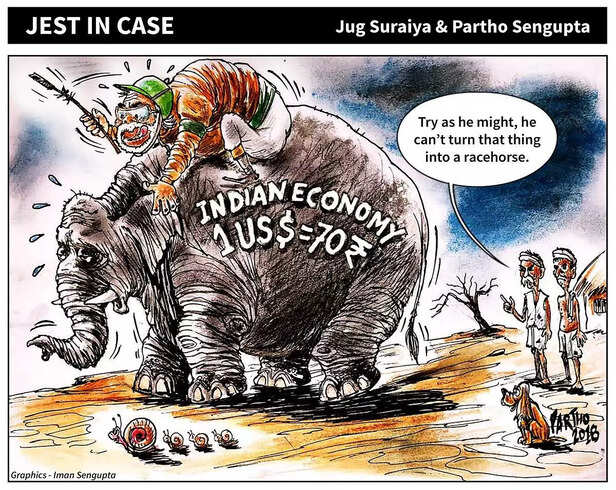"99% of People Won’t Show Up to Work If...": CEO Deshpande Calls Work a Majboori
Nidhi | Jan 08, 2025, 21:57 IST
Deshpande’s candid remarks about India’s work culture reveal a harsh reality where jobs are seen as survival tools rather than avenues for growth or passion. Highlighting wealth disparity, employee dissatisfaction, and the societal burden of "majboori," he calls for a rethinking of the toxic systems that prioritize profit over people.
What does work mean to you? A path to personal fulfillment? A way to achieve your dreams? Or simply a "majboori"—a compulsion to make ends meet? Shantanu Deshpande, CEO of Bombay Shaving Company, offers a stark reflection on India’s work culture that forces us to confront a harsh reality: for most, work is no longer a choice, passion, or purpose—it’s a survival mechanism.
In a society that glorifies hustle culture and celebrates every grind as a step toward success, Deshpande’s words hit hard. “Most people don’t like their jobs,” he bluntly declares. His unsettling statement that “99% wouldn’t show up if financial security was guaranteed” isn’t just shocking—it’s an indictment of a system that has long prioritized productivity over personal well-being, stripping work of its deeper meaning and humanity.

Deshpande paints a grim picture: From blue-collar workers sweating in factories to government employees, gig workers, and even those in so-called "fun startups," dissatisfaction is universal. “19-20 ka farak,” he quips, acknowledging that while the specifics may differ, the root of the problem remains the same.
In this culture, work isn’t celebrated as a creative or fulfilling endeavor. Instead, it’s a "dangling carrot," keeping people tied to desks, factory floors, or delivery vehicles for hours on end. The reward? A paycheck that might cover the bills but rarely offers a sense of purpose.
“We just assume it’s alright,” Deshpande reflects, “because that’s what’s been happening for 250+ years.” But is it?
Deshpande’s most striking statement is this: “Most starting points for people are zero, and work is a majboori to provide for spouse, children, elderly parents, and dependent siblings.”
Think about that. In a culture where familial responsibility is paramount, work becomes an obligation rather than an opportunity. For many, the question isn’t, “What do I want to do with my life?” It’s, “How can I earn enough to support the people who depend on me?”
This leaves little room for individuality. If you’re single, child-free, or lack dependents, society questions the validity of your job. If your work doesn’t serve others, does it even matter? In this paradigm, passion is a luxury, not a necessity.

Every employee, Deshpande argues, carries “invisible burdens on tired shoulders.” These burdens are more than financial—they’re emotional, social, and deeply ingrained in a culture that equates worth with sacrifice.
Burnout, stress, and mental health struggles are the price many pay for this toxic validation. The daily grind doesn’t just exhaust bodies; it erodes spirits. People show up, not because they want to, but because they have to. The tragedy lies in how normal this has become.

Deshpande doesn’t stop at critiquing the culture; he exposes the stark wealth disparity that perpetuates it. “2,000 families in India control 18% of the nation’s wealth,” he points out, adding that they contribute less than 1.8% of taxes.
This inequity is a cornerstone of the toxic narrative that hard work leads to success. “We peddle the ‘work hard and climb up’ story because it’s self-serving,” Deshpande admits. Yet, the reality is that for most, the climb is impossible. The ladder is broken, and the rungs are out of reach.
Even the oft-touted stat that “75% of billionaires are self-made” feels hollow when you consider how small the denominator is. Success stories are celebrated, but they mask the millions of struggles that go unnoticed, unacknowledged, and unrewarded.
The metaphor of the dangling carrot encapsulates the cruelty of modern work culture. Employees chase financial security at the expense of everything else: time, health, relationships, and dreams.
But the cost isn’t just personal—it’s societal. A culture that dehumanizes workers and prioritizes profits over people is a culture on the brink of collapse. As Deshpande asks, “Can we keep pretending this is alright just because it’s been happening for centuries?”

Deshpande’s post isn’t just a critique—it’s a call to action. If the current system is broken, how can we fix it? Can work be more than a paycheck? Can it be a source of joy, creativity, and fulfillment?
The answer lies in reimagining how we define success. Instead of measuring worth by output or dependents, we need to value individuality and well-being. Organizations must prioritize flexibility, fairness, and mental health. Governments must address wealth disparity and create policies that uplift the many, not just the few.
Most importantly, as Deshpande urges, “If you are privileged, be kind and generous.” Privilege isn’t just about wealth—it’s about power, influence, and the ability to make change. Those who have it must use it to push others up, not hold them down.
Deshpande’s reflections challenge us to envision a world where work isn’t a “majboori” but a choice. Imagine a society where financial security isn’t tied to grueling hours, where jobs offer purpose, and where success isn’t measured by sacrifice alone.
This vision isn’t utopian—it’s necessary. As Deshpande writes, “Life is very hard for most people.” The least we can do is make work a little less so.
Deshpande’s critique reveals the cracks in India’s work culture, but it also offers a glimmer of hope. Change begins with questioning the narratives we’ve accepted for too long. It’s time to stop dangling carrots and start building systems that empower, inspire, and respect individuals.
Because at the end of the day, work should be more than survival. It should be a means to thrive—not just for others, but for yourself.
In a society that glorifies hustle culture and celebrates every grind as a step toward success, Deshpande’s words hit hard. “Most people don’t like their jobs,” he bluntly declares. His unsettling statement that “99% wouldn’t show up if financial security was guaranteed” isn’t just shocking—it’s an indictment of a system that has long prioritized productivity over personal well-being, stripping work of its deeper meaning and humanity.
A Nation of Workers, Not Dreamers

Corporate employee
Deshpande paints a grim picture: From blue-collar workers sweating in factories to government employees, gig workers, and even those in so-called "fun startups," dissatisfaction is universal. “19-20 ka farak,” he quips, acknowledging that while the specifics may differ, the root of the problem remains the same.
In this culture, work isn’t celebrated as a creative or fulfilling endeavor. Instead, it’s a "dangling carrot," keeping people tied to desks, factory floors, or delivery vehicles for hours on end. The reward? A paycheck that might cover the bills but rarely offers a sense of purpose.
“We just assume it’s alright,” Deshpande reflects, “because that’s what’s been happening for 250+ years.” But is it?
Majboori as the Default Setting
Think about that. In a culture where familial responsibility is paramount, work becomes an obligation rather than an opportunity. For many, the question isn’t, “What do I want to do with my life?” It’s, “How can I earn enough to support the people who depend on me?”
This leaves little room for individuality. If you’re single, child-free, or lack dependents, society questions the validity of your job. If your work doesn’t serve others, does it even matter? In this paradigm, passion is a luxury, not a necessity.
The Invisible Burden of Survival

Middle Class
Every employee, Deshpande argues, carries “invisible burdens on tired shoulders.” These burdens are more than financial—they’re emotional, social, and deeply ingrained in a culture that equates worth with sacrifice.
Burnout, stress, and mental health struggles are the price many pay for this toxic validation. The daily grind doesn’t just exhaust bodies; it erodes spirits. People show up, not because they want to, but because they have to. The tragedy lies in how normal this has become.
A System Built on Inequity

Indian Economy
Deshpande doesn’t stop at critiquing the culture; he exposes the stark wealth disparity that perpetuates it. “2,000 families in India control 18% of the nation’s wealth,” he points out, adding that they contribute less than 1.8% of taxes.
This inequity is a cornerstone of the toxic narrative that hard work leads to success. “We peddle the ‘work hard and climb up’ story because it’s self-serving,” Deshpande admits. Yet, the reality is that for most, the climb is impossible. The ladder is broken, and the rungs are out of reach.
Even the oft-touted stat that “75% of billionaires are self-made” feels hollow when you consider how small the denominator is. Success stories are celebrated, but they mask the millions of struggles that go unnoticed, unacknowledged, and unrewarded.
The Cost of the Carrot
But the cost isn’t just personal—it’s societal. A culture that dehumanizes workers and prioritizes profits over people is a culture on the brink of collapse. As Deshpande asks, “Can we keep pretending this is alright just because it’s been happening for centuries?”
Rethinking the Narrative

Work Culture
Deshpande’s post isn’t just a critique—it’s a call to action. If the current system is broken, how can we fix it? Can work be more than a paycheck? Can it be a source of joy, creativity, and fulfillment?
The answer lies in reimagining how we define success. Instead of measuring worth by output or dependents, we need to value individuality and well-being. Organizations must prioritize flexibility, fairness, and mental health. Governments must address wealth disparity and create policies that uplift the many, not just the few.
Most importantly, as Deshpande urges, “If you are privileged, be kind and generous.” Privilege isn’t just about wealth—it’s about power, influence, and the ability to make change. Those who have it must use it to push others up, not hold them down.
A Future Beyond Majboori
This vision isn’t utopian—it’s necessary. As Deshpande writes, “Life is very hard for most people.” The least we can do is make work a little less so.
Conclusion: Work for Yourself, Not Just Others
Because at the end of the day, work should be more than survival. It should be a means to thrive—not just for others, but for yourself.
